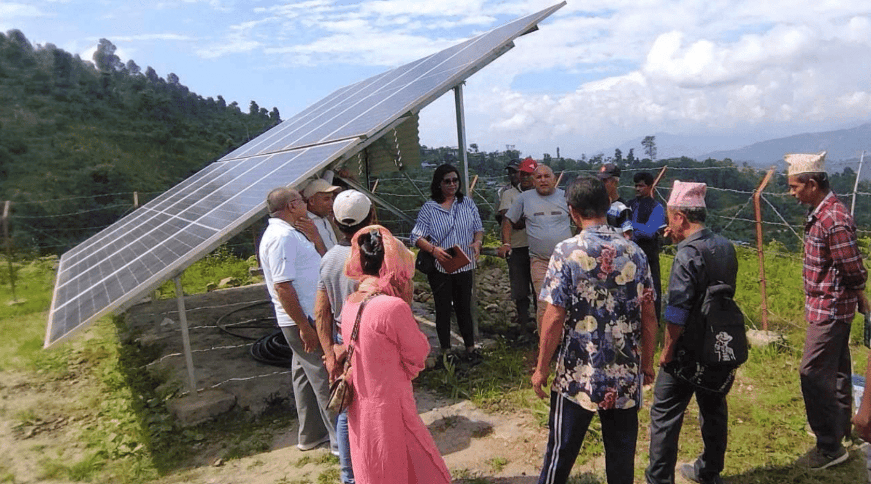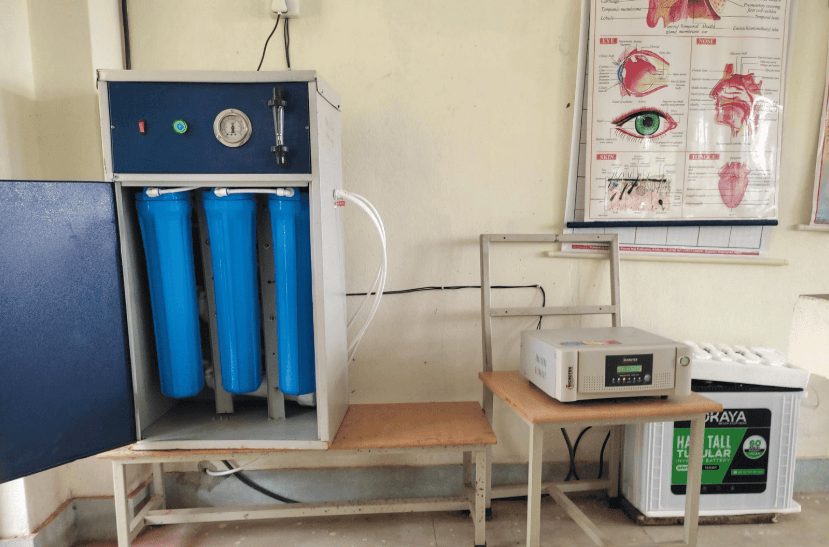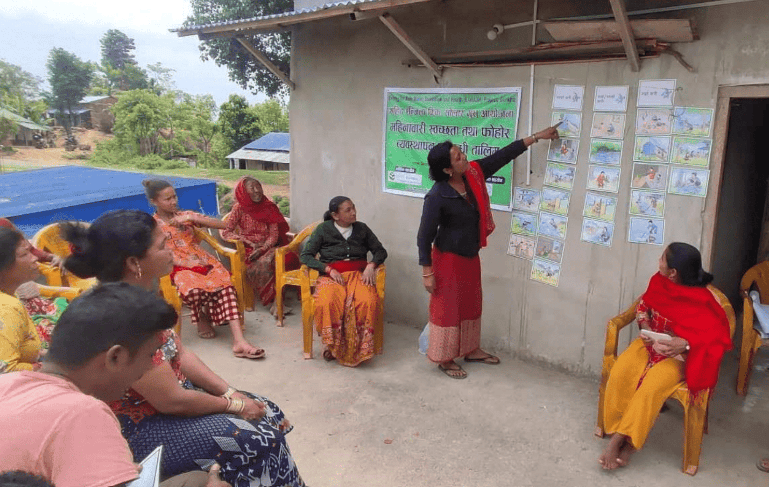


Scaling-Up WASH in hard-to-reach hilltop communities through clean energy and social and behaviour change communication
Location
Bheri Municipality, Chhedagad Municipality and Kushe Rural Municipality, in Jajarkot District, Nepal.
Project Dates
1 February 2025 – 31 January 2029
Technology
Solar-powered water pumping for multiple use system (Solar MUS), solar-powered and bio-sand water filters
Project Reach
4,665 community members will reduce their risk of illness and increase their income, food security and nutritional status through healthy WASH behaviours and by leveraging clean energy-enabled access to safe water.
1,499 school pupils and 83 school staff will experience increased health, wellbeing, and access to education through improved WASH facilities and healthy WASH behaviours.
762 school-age girls will experience less stigma and greater support during menstruation.
773 small-scale farmers and their households will increase their produce through improved water access and market linkages, and climate-smart agriculture techniques.
9 water user committees (WUCs) will have the capacity and funds to ensure the future operation, maintenance and management of their communities’ and schools’ water systems.
Project Partners
Hilly Region Development Campaign (HRDC)
Project Funders
EKOenergy Climate Fund
Target SDGs
1, 3, 6, 7
Overview
In Nepal’s Jajarkot District, hard-to-reach, marginalised, and under-resourced hilltop communities are reliant on unsafe and/ or inaccessible water supplies, experiencing poor sanitation and poor nutrition, and facing chronic food insecurity. A shortage of safe and affordable water and healthy behaviours leads to a high risk of waterborne illness, undermines crop production and livelihoods, and reinforces gender inequalities both in school, and the community.
Powered by clean and renewable solar energy, E4WASH Scale-Up will bring safe water and improved sanitation to 4,665 people to nine of Jajarkot’s impoverished hilltop communities. Safe WASH services, facilities, and behaviours will reduce illness, enable communities to increase crop production through climate-smart agriculture, and change the lives of women and girls in school. This will lead to improved health, reduced economic vulnerability, and improved food security.
Results Framework
Goal: Improved health and livelihoods for 4,665 people in hard-to-reach hilltop communities of Jajarkot District, Nepal by the end of January 2029
Outcome 1: Increased understanding and positive behaviours relating to WASH and increased access to safe water and WASH infrastructure for 4,665 community members and school pupils
Outcome 2: Improved and equitable local governance for sustainable operation and maintenance of 9 installed/improved WASH infrastructures
Outcome 3: Increased capacity of 773 farmers to pay water tariff through increased production and sale of vegetables and spices
Outcome 4: Project is accountable to communities and can demonstrate the benefits of sustainable clean energy-centred livelihoods